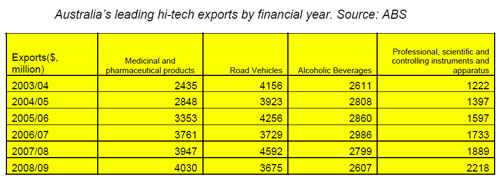Government investment in the healthcare system will improve workforce participation and productivity and help drive long-term economic growth, Medicines Australia has told the Government ahead of the third Intergenerational Report, due out this year.
The next IGR should model the economic benefits of medicines to productivity as well as other areas of the health budget such as hospitals, doctors and nursing homes, Medicines Australia argues in a submission to Government titled The role of pharmaceuticals in an ageing population.
“Medicines are a vital tool for ensuring Australia’s population remains healthy and productive as it ages,” Medicines Australia said.
“How the Government manages Australia’s use of medicines in the future and the Pharmaceutical Benefits Scheme will be a key determinant of our future social and economic prosperity.
“Future considerations of pharmaceutical policy reform should be couched in the context of new medicines being critical to ensuring long-term productivity and healthy ageing in Australia.
“While unmanaged spending runs the risk of causing fiscal problems for future generations, too little spending runs the risk of Australia’s population being less healthy and less productive as it ages.
“Spending on medicines provides social and economic benefits that need to be recognised in any discussion about future policy and spending decisions.”
Medicines Australia chief executive Dr Brendan Shaw urged the Rudd Government to consider carefully the productivity benefit in all policy decisions about the level and composition of healthcare spending.
“The promising new medicines currently in development in cancer, arthritis, Alzheimer’s disease, asthma, heart disease, obesity and other areas can play a key role in ensuring a healthy and productive ageing population in the future,” Dr Shaw said.
“But we must be careful to ensure that the PBS is not compromised to such an extent that it cannot accommodate funding for these new therapies in the future.
“We are at a critical juncture in health policy. The Rudd Government is correct in saying that we have a unique opportunity to reform the health system, but we must keep one eye on what is best for Australia’s long-term productivity and efficiency.”
Medicines Australia’s submission is available at: http://www.medicinesaustralia.com.au/pages/page97.asp
–ENDS–
Contact Person:
Jamie Nicholson
Media Communications Manager
Phone: 0419 220 293
Email: Jamie.Nicholson@medicinesaustralia.com.au

